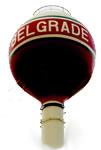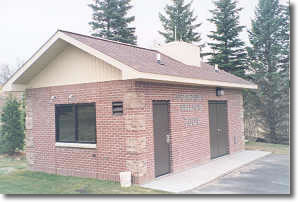Drinking Water Protection
- Drinking Water Protection Home
- About Us
- A-Z Index of Contaminants in Water
- Community Public Water Supply
- Drinking Water Grants and Loans
- Drinking Water Institute
- Drinking Water in Schools and Child Cares
- Drinking Water Revolving Fund
- Laws and Rules
- Noncommunity Public Water Supply
- Source Water Protection
- Water Operator and Certification Training
- Drinking Water Protection Contacts
Related Topics
- Annual Reports
- Drinking Water Risk Communication Toolkit
- Drinking Water Protection External Resources
- Fact Sheets
- Forms
- Invisible Heroes Videos: Minnesota's Drinking Water Providers
- Noncom Notes Newsletter
- Sample Collection Procedures (videos, pictures, written instructions)
- Waterline Newsletter
Related Sites
- 10 States Standards
- Clean Water Fund
- Health Risk Assessment – Guidance Values and Standards for Water
- Minnesota Well Index
- Water and Health
- Wells and Borings
Environmental Health Division
About Community Public Water Supply
What is a community public water supply?

Community public water supplies serve at least 25 persons or 15 service connections year-round. Community public water supplies include municipalities (cities), manufactured mobile home parks, etc. These systems are required to provide a safe and adequate supply of water under the federalSafe Drinking Water Act (SDWA). Currently there are almost 1,000 community water supplies in Minnesota.
Community Water Supply Systems in Minnesota
| Public Water System Type | Number of Systems |
|---|---|
| Municipal | 731 |
| Nonmunicipal | 237 |
| TOTAL | 968 |
Certified Water Operators
At least one certified water operator is required at each community public water supply system. That operator must hold a certificate that is at least the same class as the system (e.g., a Class B system requires a Class B certificate).
Role of the community public water supply unit
The Minnesota Department of Health (MDH) Community Water Supply Unit is responsible for making sure community water supply systems meet the standards of the federal Safe Drinking Water Act. The Unit consists of field staff located in MDH's district offices and compliance staff located in St. Paul.
The activities of the Unit include:

Sanitary Surveys: A sanitary survey is an on-site review of the adequacy of the water source, facilities, equipment, operation and maintenance of a public water supply system for producing and distributing safe drinking water. Sanitary surveys for community water supply systems are conducted once every 18 months.
- Sample Collection: Required water samples are collected by MDH or the public water supply. All community water supplies are tested for contaminants such as pesticides, solvents, and metals.
- Technical Assistance: Field staff provides on-site technical assistance to community water supply systems in resolving contamination events and other water system problems.
- Training and Education: Each community water supply is required to have at least one certified operator. MDH staff participate in water supply training throughout the state. Additionally, an informational newsletter is sent quarterly to each certified water operator.